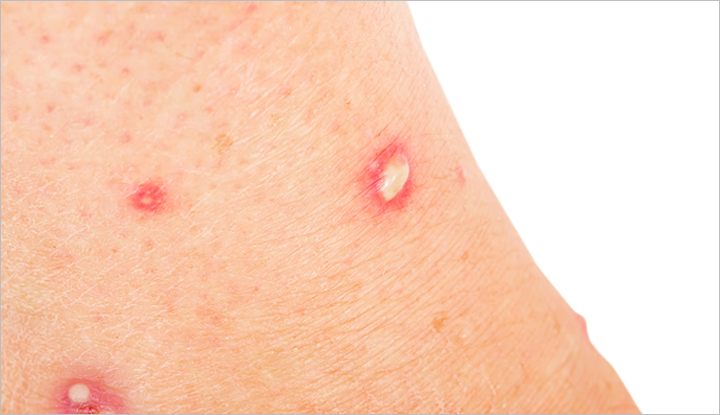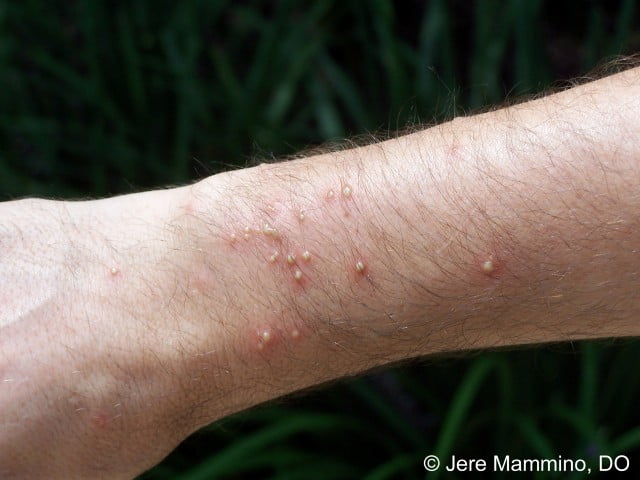To treat ant bites, wash the area with soap and water and apply a cold compress to reduce swelling. Over-the-counter medications can alleviate itching and discomfort.
Encountering ant bites can be a common yet frustrating experience. Quick and effective remedies are crucial to alleviate the ensuing pain and irritation. Being knowledgeable about how to address these bites is not only comforting but also beneficial for outdoor enthusiasts and individuals in ant-prone areas.
This article aims to guide you through simple steps to alleviate the discomfort caused by ant bites. With the right approach, you can mitigate symptoms and prevent infections, ensuring that your outdoor activities remain enjoyable and safe. Keep reading for straightforward, SEO-optimized advice on handling ant bites, helping you and your loved ones stay itch and pain-free.
Initial Responses To Ant Bites
Imagine you’re enjoying a sunny day at the park and suddenly, you feel a sharp sting on your skin. You look down to see an ant retreating from a fresh bite on your arm. Ant bites can be quite painful and irritating. Knowing the right initial responses can help alleviate discomfort and prevent infection. Let’s dive into how best to tackle those pesky ant bites.
Assess The Severity
Identify the type of ant because some, like fire ants, cause more severe reactions. Check for signs of an allergic reaction, such as hives, swelling, and trouble breathing. Multiple bites might warrant medical attention, especially in sensitive individuals.
Immediate Care Steps
- Wash the area with soap and water to cleanse the wound.
- Apply a cold compress to reduce swelling and relieve pain.
- Use anti-itch creams such as hydrocortisone to soothe the itch.
- Avoid scratching to prevent infection.
- Elevate the affected area if possible, to minimize swelling.

Credit: my.clevelandclinic.org
Home Remedies To Soothe The Pain
Ant bites often result in redness, swelling, and pain. Fortunately, several simple home remedies can provide relief. Let’s explore effective methods to ease the discomfort caused by ant bites.
Use Of Cold Compresses
A cold compress can reduce swelling and pain. Simply wrap ice in a cloth and apply it to the bite area.
- Gather ice cubes or a frozen item.
- Wrap the cold source in a clean cloth.
- Apply it to the affected area for a few minutes.
Applying Aloe Vera Gel
Aloe vera is known for its soothing properties. It works well on itchy ant bites.
- Cut an aloe vera leaf and extract the gel.
- Apply the gel directly on the bite.
- Let it dry naturally for relief.
Mitigating Itchiness And Swelling
Ant bites can be bothersome, causing itchiness and unsightly swelling. To soothe these irritations, simple home remedies can provide effective relief. Act quickly to calm the area and reduce discomfort.
Baking Soda Paste Applications
Baking soda neutralizes ant venom, and its paste reduces swelling. Follow these steps:
- Mix one part water with three parts baking soda to form a paste.
- Apply directly to the bite.
- Leave it on for at least 10 minutes.
- Rinse off with cool water.
Repeat if needed. It eases itching fast.
Oatmeal Baths For Relief
For multiple bites, oatmeal baths soothe skin. Fill your tub with warm water and follow these steps:
- Add 1 cup of ground oatmeal or colloidal oatmeal to the bath.
- Soak for 20 minutes.
- Pat dry gently. Avoid rubbing.
This natural remedy reduces inflammation and calms itching.
Over-the-counter Solutions
Over-the-Counter Solutions provide quick relief from the itch and discomfort of ant bites. These remedies are easy to find at your local pharmacy. They reduce swelling and calm the skin. Let’s explore some options to ease the sting of those pesky ant encounters.
Topical Antihistamines
Topical antihistamines relieve itching and reduce the urge to scratch. Apply a small amount directly to the bite.
- Diphenhydramine (such as Benadryl cream)
- Loratadine lotions for sensitive skin
- Look for products labeled as ‘Anti-Itch’
Anti-inflammatory Creams
These creams lower swelling and calm redness. Ibuprofen or hydrocortisone creams work well. Remember to read the instructions.
| Product | Use |
|---|---|
| Ibuprofen Gel | Apply every 4-6 hours |
| Hydrocortisone Cream | Use up to 3 times a day |
When To Seek Medical Attention
Most ant bites cause minor discomfort. Yet, severe reactions need urgent care. Know when to call a doctor.
Signs Of Allergic Reactions
If you notice trouble breathing or swelling, act fast. These symptoms can be urgent:
- Difficulty breathing
- Swelling of face, throat, or tongue
- Dizziness or confusion
- Rapid heart rate
- Stomach cramps or pain
Potential For Infection
Watch the bite area for signs of infection. These include:
- Pus or increasing redness
- Swelling that worsens over time
- Feeling of warmth around the bite
- Fever or chills
Seek medical care immediately if these symptoms appear.
Prevention Better Than Cure
Dealing with ant bites can be painful and irritating. It’s far easier to stop these bites before they happen. Remember, it’s not just about treating bites, but avoiding them altogether. With simple steps, you can enjoy outdoor activities without the fear of ant bites.
Avoidance of Ant HabitatsAvoidance Of Ant Habitats
Stay alert in areas where ant nests are common. Ants love to build homes in dry, sandy soil or near plants and trees. Keep an eye on the ground when hiking or picnicking. Do not stand or sit near ant hills. Teach kids to recognize ant territories.
Using Insect RepellantUsing Insect Repellant
Apply an insect repellent that contains DEET or picaridin on exposed skin. Reapply every few hours for continuous protection. Choose repellents that are safe for children and follow the instructions.
- Wear closed shoes and socks in grassy areas.
- Avoid sweet-smelling perfumes or lotions, as they attract ants.
Natural Ant Repellents
Dealing with ant bites can be bothersome. Effective natural ant repellents might just be the solution. These remedies focus on keeping ants at bay, reducing the chance of bites. This portion of the blog will explore some natural ways to deter ants.
Lemon Juice And Vinegar
Lemon juice and vinegar have strong scents that ants dislike. They disrupt the pheromone trails ants use to navigate.
- Squeeze lemon at entry points.
- Apply vinegar using a spray bottle.
These kitchen staples act as a barrier, keeping ants from invading.
Essential Oils As Deterrents
Essential oils offer a pleasant way to repel ants. Ants avoid strong smells, making essential oils perfect. Here’s a list:
| Essential Oil | How to Use |
|---|---|
| Peppermint | Mix with water and spray around the house. |
| Tea Tree | Apply drops to areas with ant activity. |
| Clove | Leave cotton balls soaked in oil in ant-prone zones. |
Use these oils to create a scent barrier.
:max_bytes(150000):strip_icc()/FireAntBite-9f9561b55155424b997d2bbb6cbccc7a.jpg)
Credit: www.health.com
Educating Others
Dealing with ant bites can be a nuisance, but spreading the word on how to handle these situations is crucial. Under the umbrella of ‘Educating Others,’ we aim to equip not just individuals but entire communities with the knowledge they need to manage ant bites effectively. Let’s dive into how educating different groups can make a big difference.
Informing Children About Ants
Children are often the most curious and the most at risk for ant bites. It’s important to teach them both the value and potential dangers of these small insects. Through simple, engaging activities, we can show younger audiences how to recognize different types of ants and what to do if they get bitten.
- Show pictures of ants to help kids identify them.
- Explain the importance of ants in nature using fun facts.
- Use role-play to simulate scenarios of safe behavior when near ants.
- Provide a list of steps in easy-to-follow language for treating ant bites.
Community Awareness Programs
Awareness is key in fostering a community that knows how to respond to ant bites. By launching programs that offer knowledge and resources, communities can minimize the risks associated with these small yet impactful creatures.
| Program Element | Description | Impact |
|---|---|---|
| Workshops | Interactive sessions with health professionals | Direct learning experience |
| Flyers and Posters | Visual aids posted in public spaces | Information is widely accessible |
| Digital Campaigns | Use of social media for tips and facts | Engages broader audience |
Programs should tailor their content to ensure it suits all members of the community, from children to the elderly. Maintaining clear communication lines, backed by experts, elevates the community’s ability to handle these bites calmly and effectively.

Credit: www.pinterest.com
Frequently Asked Questions Of How To Help Ant Bites
What Are Immediate Treatments For Ant Bites?
Immediate treatments for ant bites include washing the area with soap and water, applying a cold compress to reduce swelling, and avoiding scratching to prevent infection. Over-the-counter antihistamines can also relieve itching.
Can Ant Bites Cause Allergic Reactions?
Yes, some individuals may experience allergic reactions to ant bites. Symptoms include severe swelling, redness, difficulty breathing, and dizziness. Seek medical attention immediately if these symptoms occur.
How To Quickly Reduce Ant Bite Itching?
To quickly reduce itching from an ant bite, apply a topical corticosteroid or a paste made of baking soda and water. Calamine lotion or aloe vera gel can also soothe the itch effectively.
Are Home Remedies Effective For Ant Bite Relief?
Home remedies can be effective for ant bite relief. Apply apple cider vinegar, a slice of onion, or a dab of honey to the bite to alleviate pain and itching. However, effects may vary from person to person.
Conclusion
Ant bites can be a nuisance, but they don’t have to ruin your day. With the simple remedies and preventative tips outlined, you can treat any discomfort effectively. Remember, stay calm and reach for natural solutions for quick relief. Don’t let ants put a damper on your outdoor adventures – stay prepared and informed.

I’m MD Tanvir, and I bring years of expertise gained from working closely with pest control companies to the forefront. My journey in the industry has inspired me to launch Bug Battler, a platform aimed at equipping people with the know-how to combat pests autonomously. Through Bug Battler, I aim to empower individuals with practical insights to tackle pest infestations effectively.

